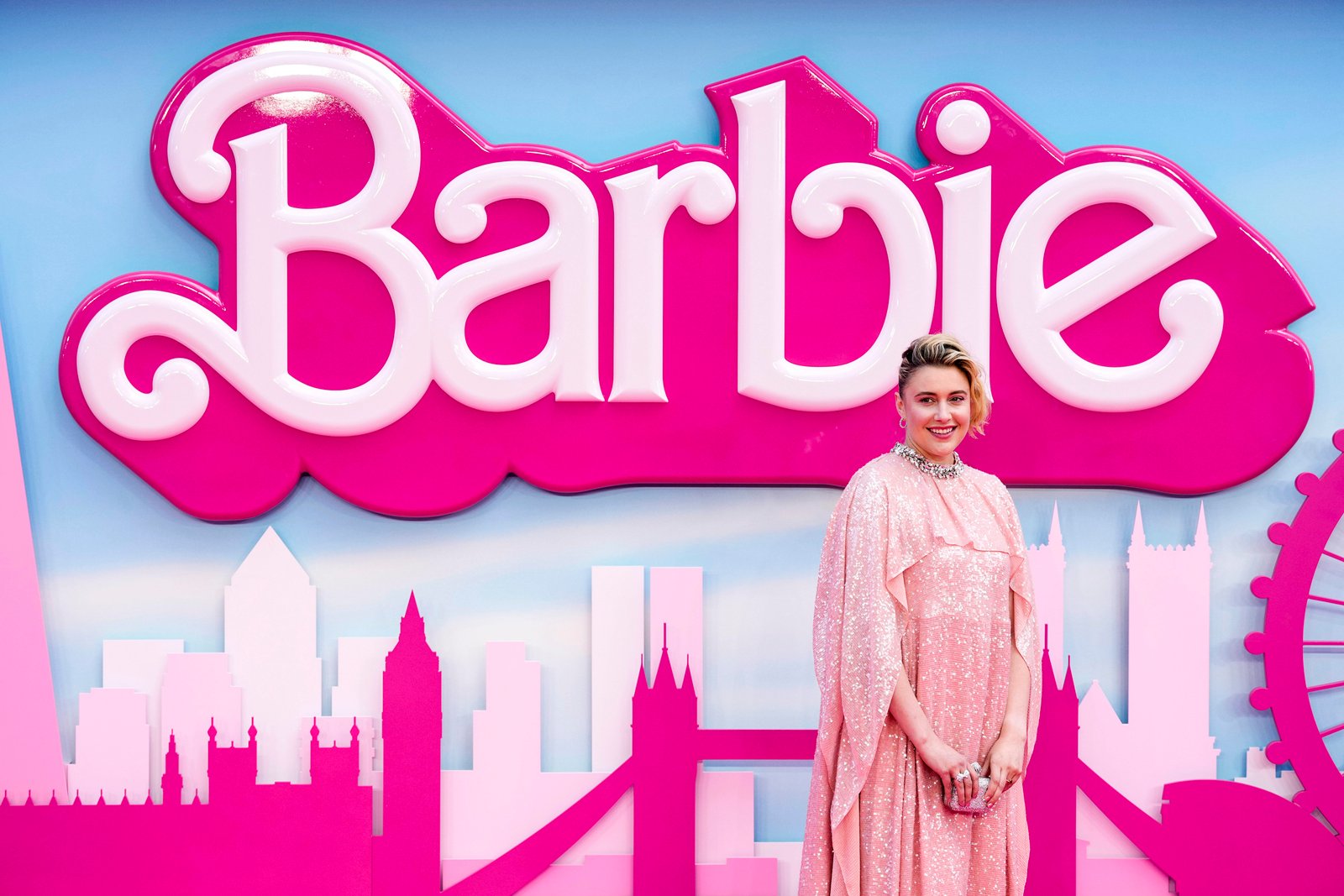In a groundbreaking achievement for both the film industry and female filmmakers, “Barbie,” directed by Greta Gerwig, has shattered records, grossing over $1 billion in ticket sales at the global box office. This milestone makes Ms. Gerwig one of the few women in Hollywood history to helm a billion-dollar movie, previously a realm reserved for 28 male directors. Warner Bros., the studio behind the film, expressed jubilation at the movie’s unprecedented success, highlighting its significance in defying stereotypes surrounding “girl” movies.

Historic Breakthrough: Greta Gerwig’s ‘Barbie’ Surpasses $1 Billion at Box Office
Record-Breaking Success:
Warner Bros. proudly announced that “Barbie” achieved this historic feat in just 17 days of release, outpacing any other film in the studio’s century-long existence. The previous record-holder, “Harry Potter and the Deathly Hallows: Part 2,” took 19 days to cross the billion-dollar mark. Jeff Goldstein, Warner’s president of domestic distribution, lauded the movie’s unprecedented box-office run.
Greta Gerwig’s Milestone:
Greta Gerwig, the visionary director behind “Barbie,” became the first woman to join the elite group of billion-dollar directors. Teaming up with her partner, Noah Baumbach, she co-wrote the film’s script, showcasing her multifaceted talent. Despite her remarkable achievement, Ms. Gerwig remained unavailable for comment, leaving the film’s success to speak for itself.

Breaking Stereotypes:
The overwhelming success of “Barbie” defied long-held Hollywood stereotypes that “girl” movies, particularly those helmed by women, possess limited appeal. Films such as “Wonder Woman,” directed by Patty Jenkins, and “Captain Marvel,” directed by Anna Boden and Ryan Fleck, had previously challenged these notions. Nevertheless, the industry had been hesitant to invest significantly in such projects. Before “Barbie’s” release, some Warner Bros. executives questioned the decision to provide substantial funding for what they deemed a “pink movie.”
- Advertisement -
Women in Hollywood Leadership:
Ana-Christina Ramón, an authority on Hollywood hiring practices from the University of California, Los Angeles, pointed out the undervaluation of women-centered movies, which stems from the scarcity of women in senior leadership roles within studios. The reluctance to take risks on projects led by women is often fueled by reliance on past experiences and stereotypes. However, “Barbie’s” success serves as a powerful reminder that empowering women in positions of power can yield groundbreaking results.
The People Behind the Success:

While Greta Gerwig’s direction played a crucial role, the success of “Barbie” also owed itself to the collaborative efforts of hundreds of individuals, both men and women. Ynon Kreiz, the chief executive of Mattel, embraced Ms. Gerwig’s satirical take on the iconic Barbie brand, and Toby Emmerich, a former chairman of Warner Bros. Pictures Group, gave the green light to the ambitious project. The film received robust support from Josh Goldstine, Warner’s president of worldwide movie marketing, and Courtenay Valenti, Warner’s former president of production, who recognized its cultural significance and pushed for a sufficient budget to bring the vision to life.
Greta Gerwig’s Ascendancy in Hollywood:
With “Barbie” emerging as the most successful film of Greta Gerwig’s career, her reputation as a name director solidifies further. Known for previous critically acclaimed works like “Little Women” and “Lady Bird,” Ms. Gerwig has received multiple Oscar nominations, cementing her status as one of Hollywood’s most prominent filmmakers. Alongside directors like Jordan Peele, she exemplifies the impact of fresh voices and distinct storytelling on mainstream audiences.
Greta Gerwig’s directorial prowess and the resounding success of “Barbie” represent a watershed moment in the film industry, proving that women-centered movies possess immense commercial potential. As Hollywood evolves to embrace diversity and inclusivity, it is evident that women filmmakers can leave an indelible mark on the cinematic landscape, setting new benchmarks for future generations to follow.








